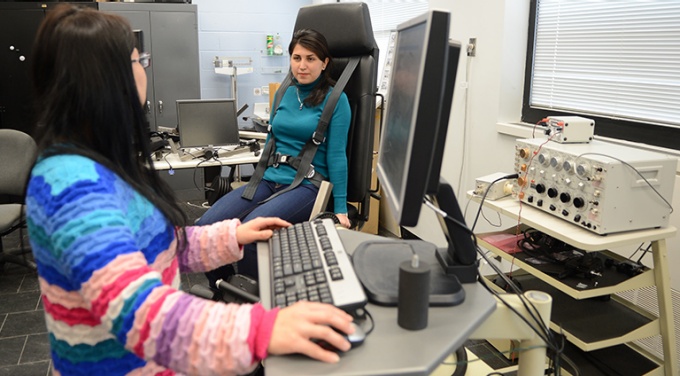Human Factors/Ergonomics
Human factors and ergonomics (HFE) applies industrial engineering, physiology, psychology, and computer science to the design of working and living environments with explicit consideration of the physical and mental characteristics of users.

Faculty and students in HFE conduct research in areas such as human-automation interaction, mathematical modeling of human performance, inclusive design, occupational safety, workplace design, cognitive engineering, and biomechanics.
Our department has a 50-year history of quality education and research in HFE. UB's IE program is one of the few graduate programs offered within an engineering school to be accredited by the Human Factors and Ergonomics Society. We have an active student body, as evidenced by our award-winning student chapter of the Human Factors and Ergonomics Society.
HFE research is funded by such agencies as the U.S. Department of Transportation, the National Science Foundation, the National Institute for Occupational Safety and Health, the National Institute on Disability, Independent Living, and Rehabilitation Research, the Agency for Healthcare Research and Quality and the National Institutes of Health, as well as national and local corporations.
Our graduating students take human factors positions in academic institutions, federal laboratories, and national corporations.
Required Core Courses
IE PhD students who concentrate in HFE complete at a minimum:
- IE 531 Research Methods
- IE 507 Design and Analysis of Experiments
- IE 532 Human Information Processing
- IE 536 Physiological Foundations of Human Factors
- One Elective Course: Choose one 500 or 600 level Human Factors Course (e.g., IE 541, Human Factors in Safety; IE 535, Human Computer Interaction; any 600 level special topics course or other HF course)